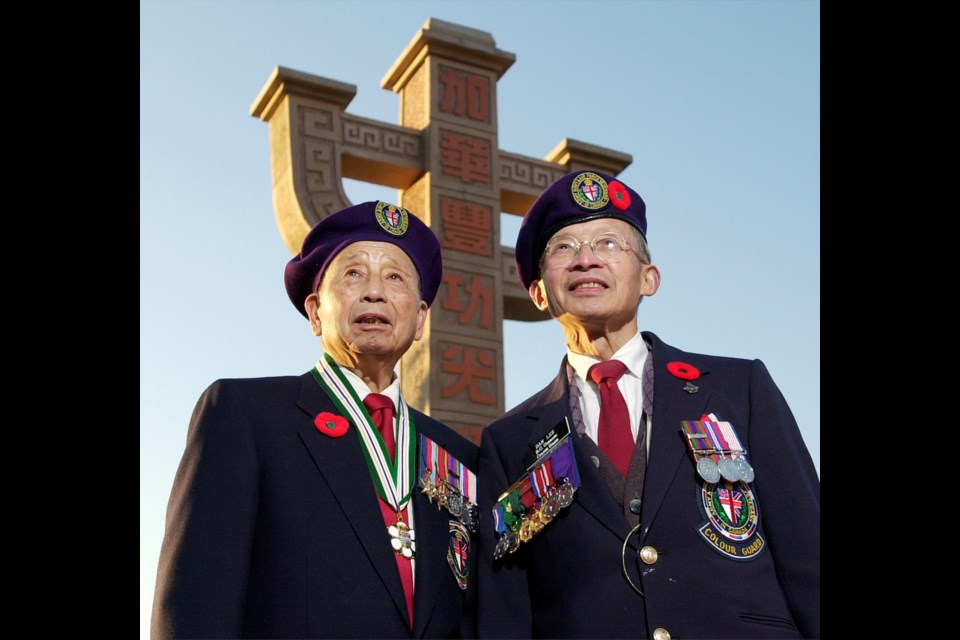The skirling of bagpipes always gets me on Remembrance Day.
That sound, that drone, that moment when the pipers come together in a chorus of musical precision — it really does, as the cliche goes, send a shiver up my spine.
It momentarily interrupts my breathing, too.
Mostly, it focuses the mind: So much loss, so much sacrifice and right there in front of us are the men and women who deserve our respect and attention on a day for remembering.
You've seen them, standing and sitting in the rain, dressed in blazers, others in uniforms, all heaving with medals. In another time, they were on battlefields in Europe, in Asia, in Africa, in Bosnia, the Persian Gulf and, most recently, in Afghanistan.
I realized this year, after more than two decades in journalism, that I've written many stories about Canadian veterans. It’s been a privilege, almost a selfish history lesson, to listen to what life was like for a soldier during wartime and what it was like for that same soldier to return home.
So, in this space today, I want to remind you of what they said. I've gone through a box of yellowed newspapers I keep in my garage and found some of their words.
• Walter Beck. He was 95 when I interviewed him in 1998. He served in the First World War and Second World War. He was a member of the 17th Reserve Battalion (Nova Scotia), which fought in the Battle of Amiens in France. He buried many of the wounded from that battle.
"Gruesome, just gruesome. The funerals were the sentimental part of war. The music, the shooting of rifles, it had an impact. But we had to give the fellas a proper military sendoff."
• Orme Payne. He was 80 when I interviewed him in 2002. He served in the Second World War as a member of the Canadian Army's 17th Field Regiment. He and good friend Gordy Bannerman fought in Italy and later joined the Canadian force that liberated Holland.
"I never thought about it at the time, but after the war I did: How the hell do you take a bunch of guys off of farms or out of offices or wherever, and get them in to such a shape that they go and kill somebody else, and then when that's done, you put them back where they came from and everything is supposed to be all right? Good God, that wasn't right."
• Daniel Lee. He was 82 when I interviewed him in 2003. He and his buddy, Roy Mah, were among those Chinese young men who served for Canada during the Second World War, even though they were not considered Canadian citizens. Lee spoke to me about sending a letter to friend Norman Gillis during wartime.
“They sent it back to me, and right on the front of it some Air Force person wrote ‘killed.’ That was it, no explanation, just ‘killed.’ I felt rotten about that for a long time.”
• Ted Gregoire. He was 85 when I interviewed him in 2004. He was a member of the Royal Winnipeg Rifles. He recalled the moment he jumped from a landing craft into icy waters during the D-Day invasion, June 6, 1944.
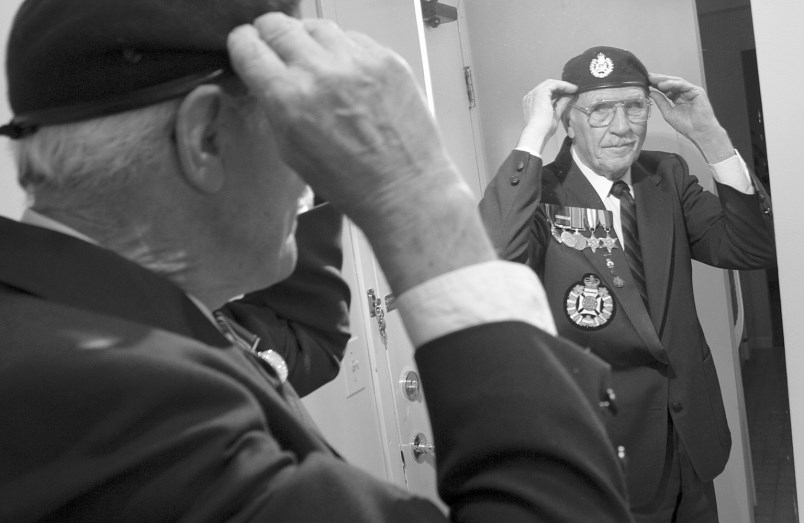
“It was like dumping a sheep in the water. Don’t ask me how I didn’t get hit, or how many got hit, but I remember jumping over bodies between the landing craft and the beach. I often think how they missed me on the beach that day. It’s something I’ll never know.”
• Tom Stewart. He was 79 when I interviewed him in 2004. He was 19 when he hit the beach during the D-Day invasion. He told a story about reaching an orchard in France where the North Nova Scotia Highlanders regiment had taken heavy casualties.
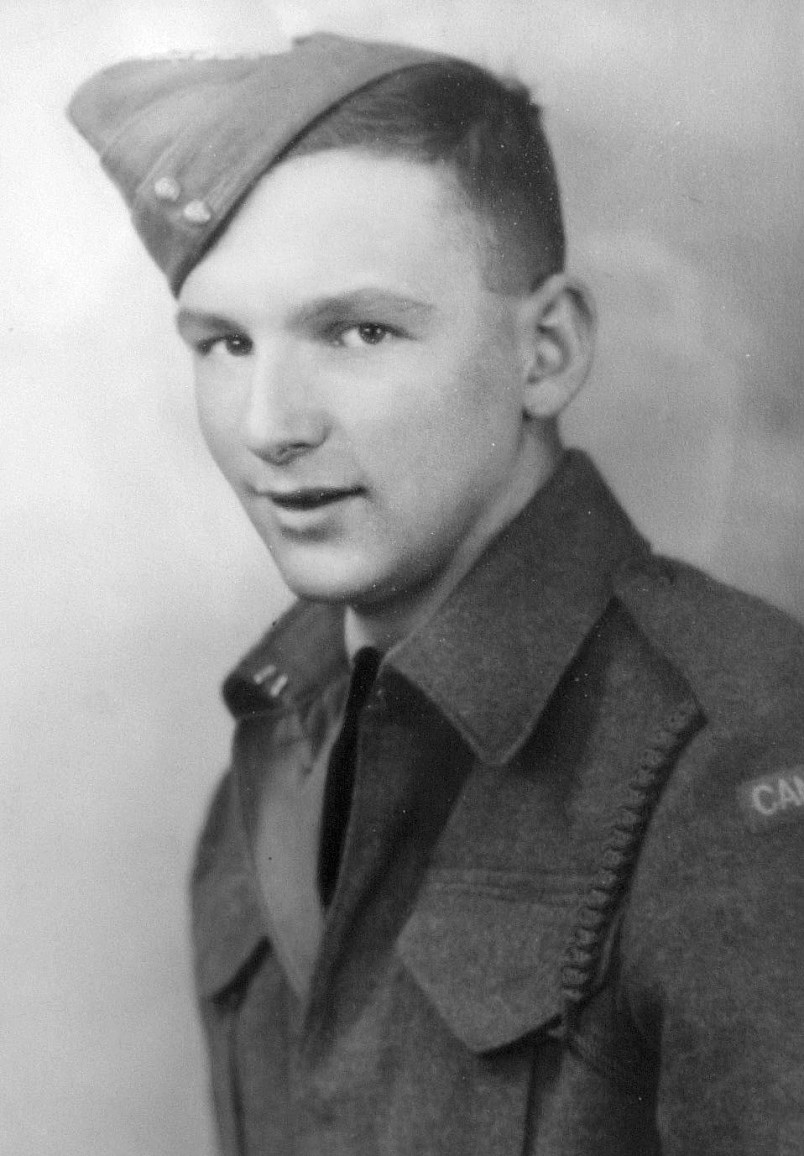
“You have to appreciate that these fellas had come over from Canada and lived together for two years before D-Day, and in three or four hours, the unit was literally destroyed. The C.O. [commanding officer] never got over it and had to be replaced. I don’t know how many men they lost, but I can tell you we weren’t very crowded in that orchard.”
• Jeff Tait. I never got to interview him because he died at 27 on Jan. 10, 1992 in a training mission in Cold Lake, Alta. He was a passenger in a CF-5 jet. One year earlier, Tait was flying bombing and escort missions in the Persian Gulf War, one of the first Canadian pilots to enter into battle since the Korean War. His brother Brian spoke to me in 1998.
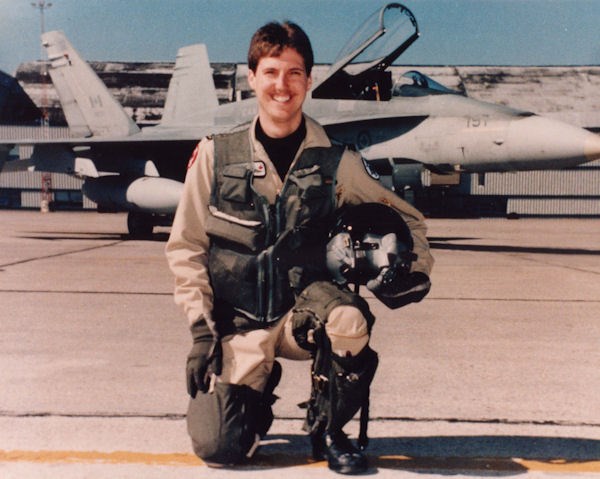
“It was tough. I had all the confidence in the world in him when he went to the Gulf. To have him die after the war, during peace time, was a shock. At this time of the year, one thing a lot of people forget about is the people who died during peace time, and to me that’s no less significant than those who died in battle.”
• John Croucher. He was 33 when I interviewed him in 2006. He was a member of Princess Patricia’s Canadian Light Infantry and was seriously injured when the LAV 3 military vehicle he was in hit an improvised explosive device in Afghanistan.
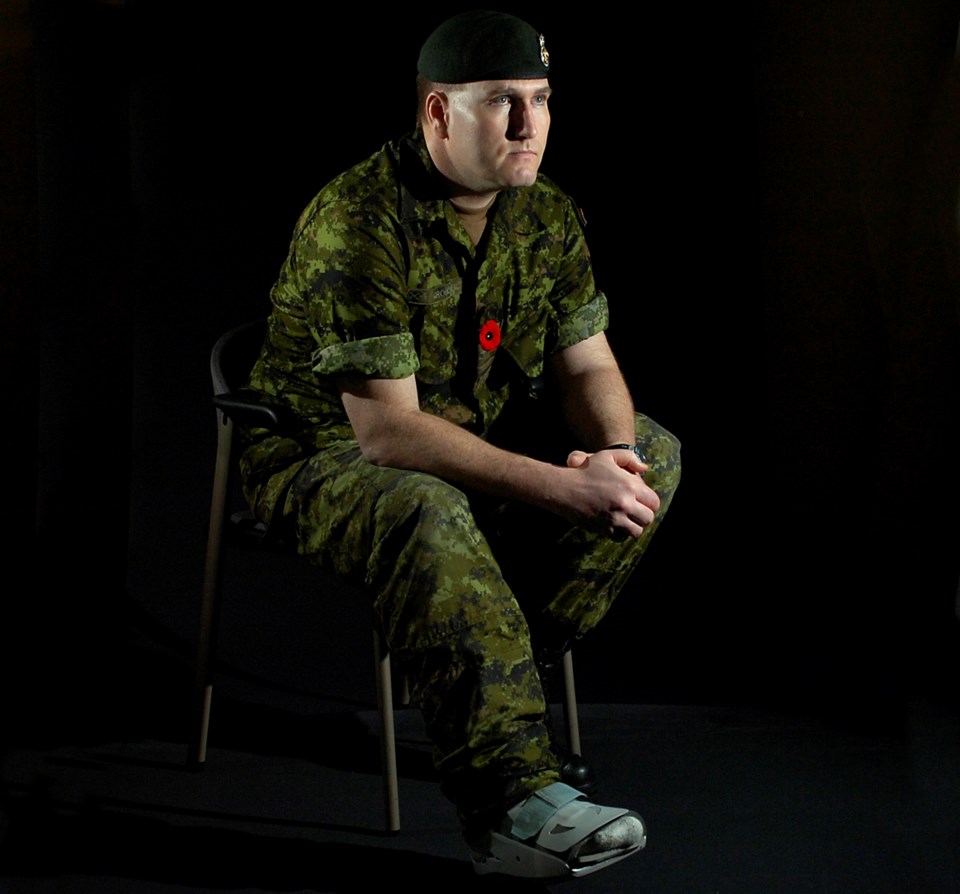
“The most difficult thing is the friends I’ve lost. And secondly, I’ve always had a fear of burning, and being on fire hasn’t removed that fear. Being on fire was very traumatic.”
• Kai Hesser. He was 30 when I interviewed him in 2006. He was a communications specialist from 741 Communications Squadron out of Victoria. He survived a bomb blast while riding in a LAV 3 vehicle. Two soldiers were seriously wounded. Hesser broke his left ankle, right knee, hip, suffered ligament damage and developed a blood clot.
“It was pretty horrific. But at the same time, when you walk through the mental process in your head of what just happened, you’re actually pretty calm about it and everybody was.”
• Mike Pehlivanian. I interviewed him via email in November 2013 from a centre for people suffering from mental illness and addictions. He was a member of Princess Patricia’s Canadian Light Infantry when a roadside bomb exploded under his armoured vehicle in Afghanistan in 2008. The blast left Pehlivanian with a serious brain injury.
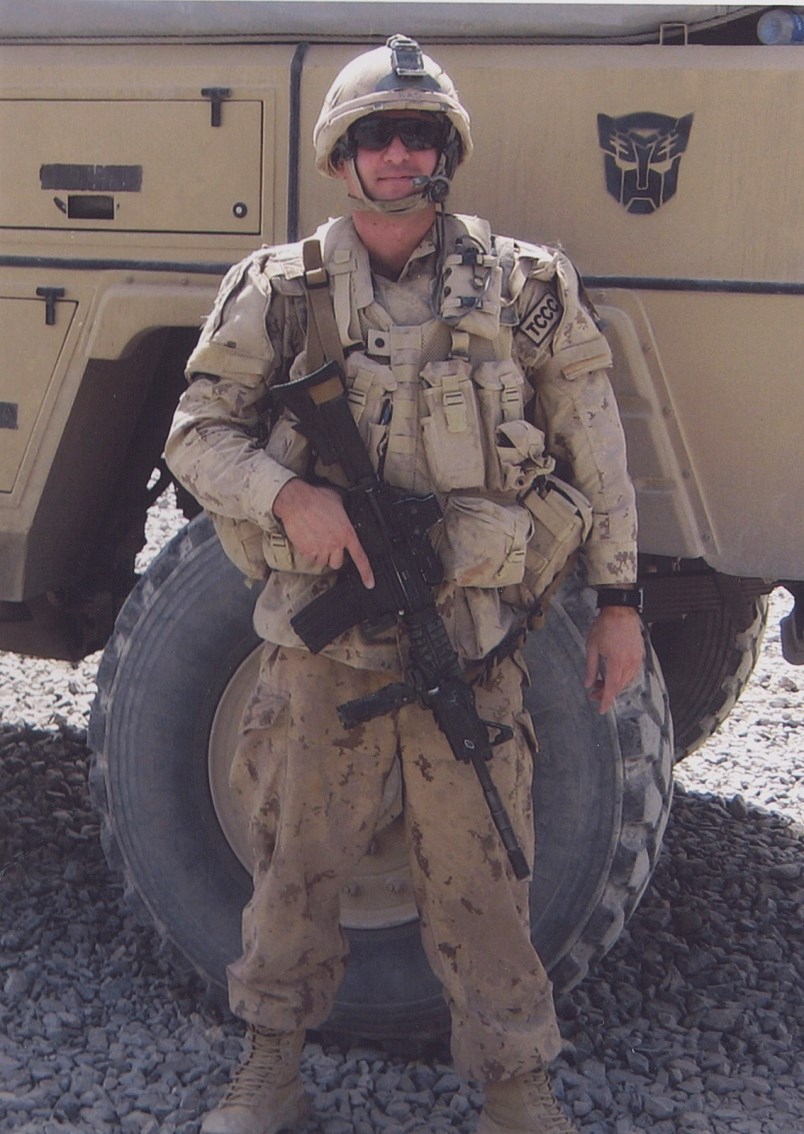
“I want to feel healthy and I am working on it each day. I have the scars that forever remind me of my suicidal path. I have memories of pride, memories of death and memories of how it was before my injuries. It’s hard on me. Almost every day, I break down in tears.”
See you at the cenotaph.
mhowell@vancourier.com
@Howellings
